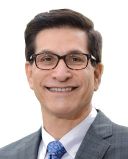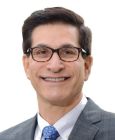Addiction
Will There Ever Be a Cure for Addiction?
The complexity of addiction makes a “one size fits all” solution unlikely
Posted July 18, 2012
When news broke about the development of a so-called cocaine vaccine, many wondered whether this signaled that an addiction antidote was near. Across the globe, researchers are working around the clock in search of an addiction cure, and their discoveries regularly make headline news. But beyond the media hype is a disease as complex as other chronic ailments such as type-2 diabetes. In this blog post, I’ll provide three reasons why a “one size fits all” cure is unlikely.
Reason 1: Programmed for Pleasure
From drinking hand-sanitizing gels to using synthetic marijuana, our society is constantly inventing new ways to get high. When one substance is banned, another quickly takes its place. What drives this never-ending hunt for the next high?
One important motivator is the pleasure principle. The quest for pleasure is a fundamental part of being human. It helps us meet our basic needs by pushing us to work towards specific goals.
Drugs provide an instant shortcut to our brain’s pleasure center. They flood our brains with dopamine and condition us to seek the next high. As a result, our bodies begin reducing their natural dopamine output. With repeated drug use, pleasure dissipates but the cravings remain. Thus, drugs hijack our natural drive for pleasure. Addicts pursue drugs despite the fact that the pleasure they experience from them progressively diminishes.
Reason 2: We Haven’t Got Time for the Pain
If we’re wired to seek pleasure, then the opposite is true as well. Avoiding pain is an equally powerful cause of addiction. People often turn to drugs to feel better about what makes them sad, depressed, fearful, or angry. Therefore, as long as there are mental illnesses such as depression, and as long as kids are raised by drug and alcohol addicted parents, people will continue to self-medicate to relieve their pain, follow their role models, or both.
Reason 3: Drug Use Isn’t Just About Drugs
Addiction is an illness that has a strong behavioral component. Those who are susceptible to addiction experience drugs and alcohol in a very different way than average people. Addicts seek the high more, but they enjoy it less. Furthermore, the cravings, rituals, and other behaviors associated with drug use continue even after a person stops using.
Why the War on Drugs Hasn’t Worked
The United States has some of the world’s strictest laws and penalties prohibiting drugs, but we still have some of the world’s highest rates of illicit drug use. One key reason behind the failure of our nation’s drug policy is that anti-drug legislation, by itself, does not address or change people’s behavior. No matter how many tens of thousands of people we send to prison or millions of children who hear the message, “Just say no,” there will always be those who want to feel more pleasure or less pain, and they’ll turn to drugs to make this happen.
Light at the End of the Tunnel
Vaccines and medications like naloxone, which block the rewarding effects of drugs, have increased the likelihood that addicts can stay off drugs or alcohol. In addition, the Obama administration’s recently revised drug policies have recognized addiction as a disease and have emphasized treatment over punishment. Will any of these developments, by themselves, cure addiction? Probably not. Nevertheless, they are steps in the right direction.
Despite our national obsession with quick fixes, there’s no simple solution to our country’s drug problem. We have to recognize that addiction, like many other chronic diseases such diabetes and cancer, is here to stay. By accepting this fact, we can work to improve addiction treatment rather than waging war against drug users. As a result, we’ll be able to focus our resources on achieving realistic and continual progress.
David Sack, M.D., is board certified in Addiction Medicine and Addiction Psychiatry. As CEO of Elements Behavioral Health he oversees a number of addiction treatment centers. He served as a senior clinical scientist at the National Institute of Mental Health (NIMH) where his research interests included affective disorders, seasonal and circadian rhythms,and neuroendocrinology. You can follow Dr. Sack on Twitter


